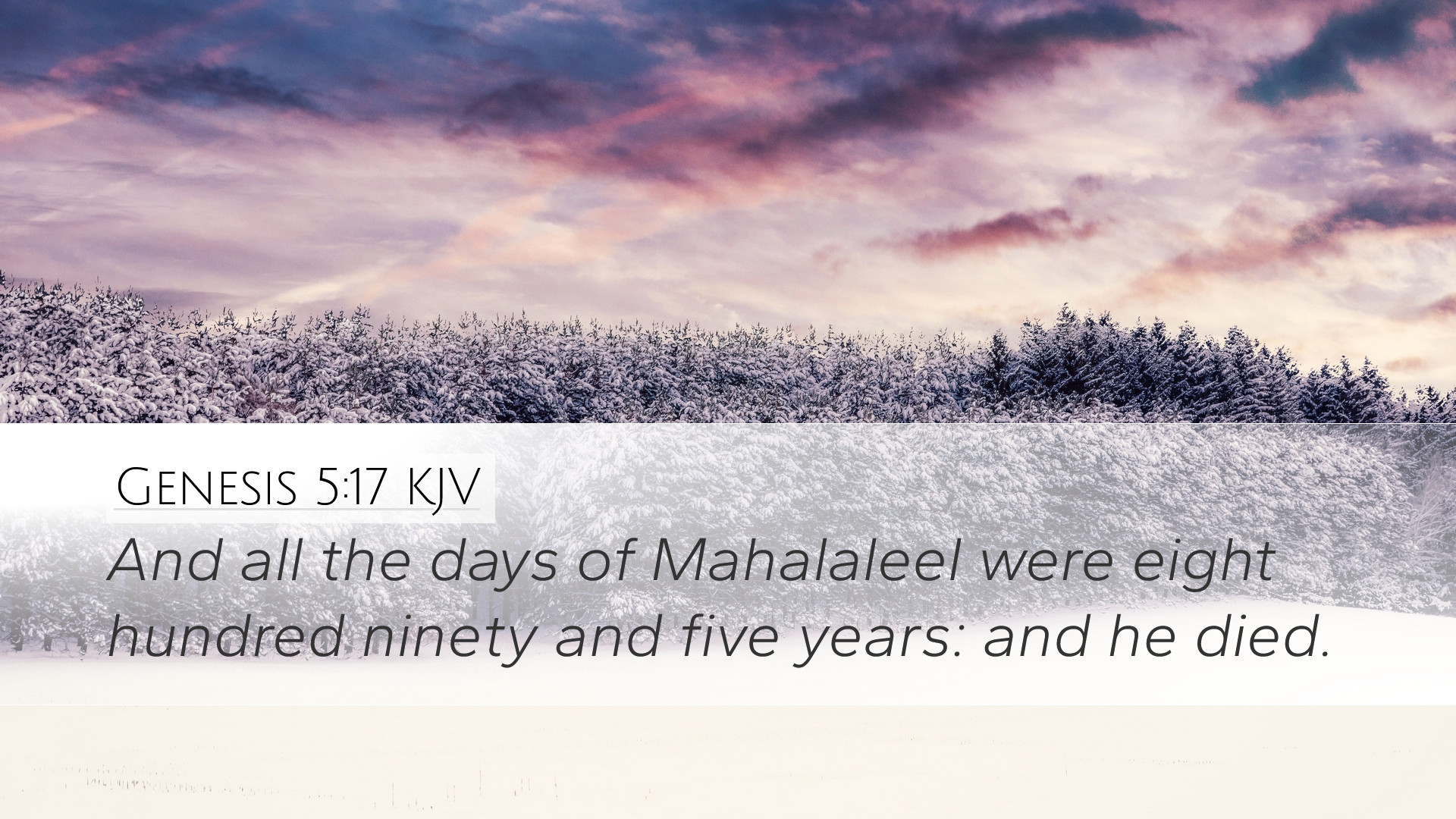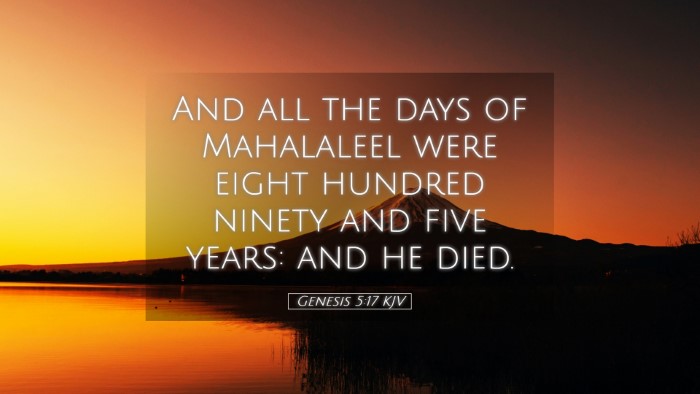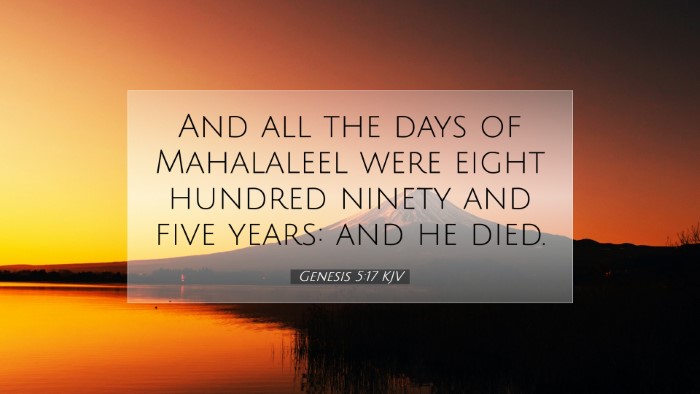Commentary on Genesis 5:17
Verse Reference: Genesis 5:17 - "So all the days of Methuselah were nine hundred sixty and nine years, and he died."
This verse encapsulates the finality of human life, reflecting a multi-faceted theology of death, genealogy, and divine judgment throughout the biblical narrative.
Historical Context
The genealogical record in Genesis 5 serves as a bridge between the early creation narrative and the coming flood. Methuselah, the oldest man mentioned in the Bible, stands as a pivotal figure in these genealogies. His lifespan of 969 years underscores the theme of longevity before the flood and raises questions about the nature of life, sin, and the human condition.
The Significance of Methuselah's Age
- Symbol of Divine Patience: Methuselah's extended life can be interpreted as a reflection of God's mercy and patience. As noted by Matthew Henry, his longevity signifies the waiting period for a faithful remnant and the ultimate execution of divine justice upon an unrepentant world.
- Linkage to Judgment: Albert Barnes observes that Methuselah's name can be translated as "his death shall bring," which may foreshadow impending judgment. His death corresponds with the timeline leading to the flood, reinforcing the idea that divine warnings and judgments draw nearer.
- Theological Implications: Adam Clarke emphasizes the theological aspect of Methuselah as a type or symbol of hope amidst impending destruction. His life represents the possibility of repentance and the long-suffering nature of God, providing a backdrop for God's redemptive plan.
Implications for Pastoral Ministry
For pastors, Methuselah's narrative encourages reflection on the nature of time and life. His life serves as a reminder of the continual call to repentance and the possibility of renewal, even in an age of decline and impending judgment.
- Preaching on Longevity: Methuselah’s age invites discourse on the value of life and the responsibilities that come with it. How do we use our time effectively in service to God and others?
- Understanding Death: The inevitability of death, as highlighted in this verse, prompts pastoral care around grief and comfort for those mourning a loss. It speaks to the importance of understanding death in light of eternal life.
Theological Reflections
The mention of Methuselah’s death aligns tightly within the broader scope of scriptural revelation concerning the fallen world and redemption. This solitary statement about his death echoes through Scripture, culminating in a timeless truth about humanity's mortality.
- Death as a Result of Sin: This verse reiterates the apostolic declaration that "the wages of sin is death" (Romans 6:23). Methuselah's death serves as a microcosm of humanity's collective struggle with sin and its consequences.
- Hope Beyond Death: While the death of Methuselah is presented in stark factual terms, it opens a gateway to understanding Christ's victory over death. The New Testament relates to this with the promise of resurrection and eternal life, providing believers with hope.
Lessons for Students and Scholars
As students and scholars delve into Genesis 5:17, a deeper understanding of the interplay between genealogical records and theological significance emerges. This verse prompts rigorous investigation into historical, linguistic, and cultural contexts.
- Genealogical Importance: The genealogies provide a crucial framework for interpreting salvation history. Studying Methuselah's lineage highlights God's covenant faithfulness through generations.
- Literary Structure: An analysis of Genesis’ literary form may reveal the intentional structure of genealogies, emphasizing theological truths through narrative progression.
Conclusion
Genesis 5:17 stands not merely as a historical account but as a multifaceted theological statement reflecting God’s nature and humanity’s condition. The life and death of Methuselah challenge individuals to ponder their place within the narrative of redemptive history, calling believers to live with an awareness of the fleeting nature of life and the eternal significance of their choices.


